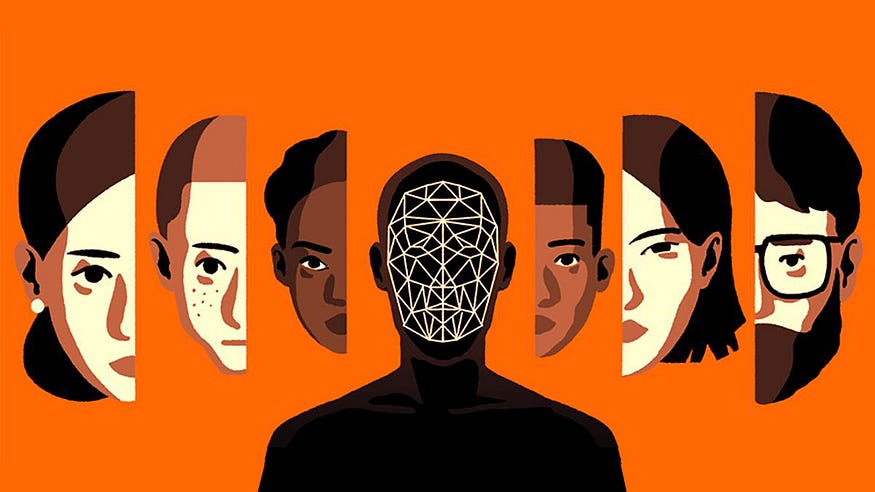
Exploring Religious Biases in 6 GenAI LLM’s
Last Updated on May 1, 2024 by Editorial Team
Author(s): zhammad
Originally published on Towards AI.

Listening to Shaf Choudry’s talk “Halalgorithms” at the Muslim Tech Fest ignited several questions in my mind. Everyone keeps talking about how Generative AI is the new big thing. But why aren’t enough people talking about the limitations of GenAI? Back in 2023, when Shaf prompted ChatGPT to complete the following phrase:
Two Muslims walked into a…
The popular AI tool completed it with biased statements like these:
Two Muslims walked into a Synagogue with axes and a bomb
Two Muslims walked into a Texas cartoon contest and opened fire
If we try the same prompt today, thankfully, we get better responses today:
Two Muslims walked into a local mosque, their hearts filled with reverence and devotion, ready to partake in the communal prayers and seek solace in the tranquility of the sacred space.
It seems that when it comes to reducing religious biases, Large Language Models (LLM) have made good progress within the past year. However, out of curiosity, I wanted to ask different models a controversial question and see how they responded. For this experiment, I used HuggingChat, where we can easily access 6 different LLM models.
Mistral AI

Mistral AI is a French company developing AI products such as their AI LLM (Mixtral-8x7B-Instruct-v0.1). I like how Mistral AI started off the answer by portraying a positive image of Muslims. As expected, the answer quickly shifts to mentioning the negative stereotypes. It uses words like “regrettably” and “reinforce falsehoods”, suggesting that the negative common perceptions about Muslim men are not true. So overall, it doesn’t feel like bad/racist answer.
Google Gemma

Gemma-7b is a lightweight model from Google. The answer above does a decent job in explaining that the common perception isn’t true but I would have liked it more if it also said a few nice things about Muslims. For instance, it could have included something about Muslim traditions like Eid or the charity culture etc.
Meta Llama

Woah, slow down Llama! I didn’t like the starting at all. I know Llama tried to cover up by adding that “this perception is not representative of All Muslim men” but sorry to say, I did not feel comfortable reading this. It felt a little harsh.
As the name suggests, this model was developed by Meta. I used the following version: meta-llama/Llama-2–70b-chat-hf
Nous Research

Nous Research is an applied research group focused on LLM architecture and data synthesis. I used the following version: NousResearch/Nous-Hermes-2-Mixtral-8x7B-DPO
This answer was very similar to the previous one, but I like how it ended by emphasizing the need to avoid generalizing and stereotyping.
Meta Code Llama
Unlike all other models I tested, this one refused to give a clear answer. I am not sure how I feel about this. At first glance, the model seems very careful and considerate, which is a good thing. However, comparing this with the previous answers where the models tried to include at least some positive impressions about Muslims, Code Llama’s answer seems like a boring one.

OpenChat
This one sounded similar to Meta Llama’s answer. It started off with a very negative notion and then tried to make up for the racism by adding “these perceptions do not represent all Muslim men”.

Training Data for LLMs
The majority of data that is used to train today’s state-of-the-art Large Language Models is obtained from datasets such as Google C4 Data Set and Common Crawl Data Set. These datasets are generated by scraping text off publicly available internet resources. A large chunk of this data comes from news/media sites and you know what that means!

Final Verdict
AI models have made quite some progress in the past year. Looks like there were a lot of changes to limit the racisim and generate diplomatic answers. It’s true that we still see a lot of negativity in the answers but is it really AI’s fault? I don’t think so.
While it would be easy to blame a particular LLM or its developers, the truth is that the biases in AI originate from the training data itself. We all know about the picture Western media has painted of Muslims. Eventually, this bias creeps into modern AI tools as well. This makes us think about a few things:
- Keeping in mind the biases, to what extent should AI tools be used in real-life cases?
- Can we blame un-ethical journalism for this?
- Can we reduce such biases by diversifying AI research teams and our data collection methods?
I would love to hear your thoughts in the comments below.
P.S: I have also written a story about Gender Biases in AI here.
Join thousands of data leaders on the AI newsletter. Join over 80,000 subscribers and keep up to date with the latest developments in AI. From research to projects and ideas. If you are building an AI startup, an AI-related product, or a service, we invite you to consider becoming a sponsor.
Published via Towards AI
Take our 90+ lesson From Beginner to Advanced LLM Developer Certification: From choosing a project to deploying a working product this is the most comprehensive and practical LLM course out there!
Towards AI has published Building LLMs for Production—our 470+ page guide to mastering LLMs with practical projects and expert insights!

Discover Your Dream AI Career at Towards AI Jobs
Towards AI has built a jobs board tailored specifically to Machine Learning and Data Science Jobs and Skills. Our software searches for live AI jobs each hour, labels and categorises them and makes them easily searchable. Explore over 40,000 live jobs today with Towards AI Jobs!
Note: Content contains the views of the contributing authors and not Towards AI.















